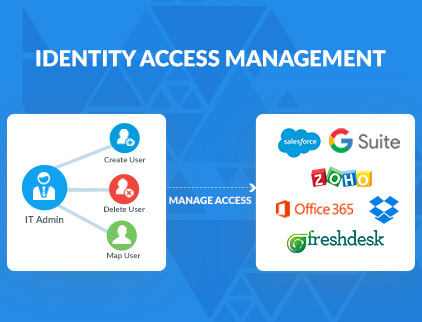What is Identity Management in Cloud Computing: Keep Cloud Data More Secure
As the global enterprises around the world are accelerating towards cloud option, they are transferring their work either on private or public clouds. In such kind of situation, it is quite obvious that they do have to face unique challenges. Vision and proper strategy both these things are important for the cloud management security. In today’s scenario, customers are tackling with programs everywhere either on-premises or in the cloud. What comes here is that the identity management services is more important than ever it has been in the past. Now a question arises in the mind that why identity management in cloud computing? There are many other security systems like firewall, intrusion detection system, etc., then, why this identity management solution is needed?
Well, the today’s demand is like getting things anywhere at any instance of time. The observation says that applications are everywhere and hence, the users are also using them outside the campus. Places can be any like coffee shops, airport, home, etc., to connect devices, which are owned by organizations. Such kind of situation creates a very challenging problem for the enterprises to keep data safe and secure. It is so because they will be unable to have control on several elements of a particular landscape. This scenario demands a user-centric security as a core foundation element in this modern security architecture. Identity management is completely delivering this user-centric security for enterprises.
What is Identity Management in Cloud Computing
The term ‘identity management’ refers to an information system, which can either be used for enterprise or cross-network identity management. This depicts a systematic management of single identity, with its authentication, authorization, privileges, and roles in the enterprise boundaries. The main objective here is to upgrade the security along with its productivity by decreasing the overall cost, repetitive tasks, and downtime. Basically, identity management in cloud computing covers all set of users who will be working with defined devices under all possible circumstances.
Identity management solutions are provided in the form of system program on the defined server or network appliances. The very basic thing while implementing identity management is defining and setting policies, which includes the fact that what users will be utilizing which resource? This is totally dependent upon the role of end user within the particular organization. Whenever a user tries to run or use a resource for which he/she is not having any permission then, an alarm triggers to notify the enterprise.
Several identity management services offer a directory integration, which is easily supported both by wired and wireless end users. The presence of BYOD service makes it a time-saving activity for an individual. Talking about the typical management functionality then, it involves following additional security services:
- Access Control
- Password manager
- Digital identity management
- Single Sign On
Benefits Of Identity Management In Cloud Computing
Cloud-based services offer multiple advantages over the traditional products and this is one reason why more attention is given towards it. Benefits of SaaS are not at all limited up to financial aspect but, also to many other aspects. Go through the following points to understand benefits of identity management in cloud computing:
- Enhanced Networking Abilities: Identity management makes it easy in sharing network capabilities with complete grid of end users who are connected with it. For example, if a new program is appended to a network then, this will easily be available for network users who are connected without any single delay.
- Offers a Smooth Collaboration: SaaS is increasingly being designed and utilized as the hub for connecting with virtual networks of several suppliers, distributors, and trading partners. After knowing that SaaS is cloud-based, it has become easy to establish a new connection between identification and access.
- Improved On-Demand Support: The problems that result from churn protects organization with cloud-based solutions. Experts will be able to provide 24*7 support and monitoring, whenever required.
- Increase in Overall Productivity: It is completely well-known fact that cloud-based services are hosted and configured by service providers. These pose a little or zero hassle either for end-users or clients. The hassle-free identity facilitates users with ease in focusing on the business development. As a result, there will be the improvement in overall productivity of the organization.
- Centralized Management System: Businesses will be able to manage entire services and programs all at one place with help of cloud-based services. All the identity management will be done with a single click on the single dashboard.
Conclusion
Applications are everywhere and one needs an infrastructure, which will be able to cover their running everywhere on-premises and in the cloud. Identity management in cloud computing features controlling of accessing the resource. This is an intelligent measure to tackle with identities security in enterprises for competing with today’s security challenges.


